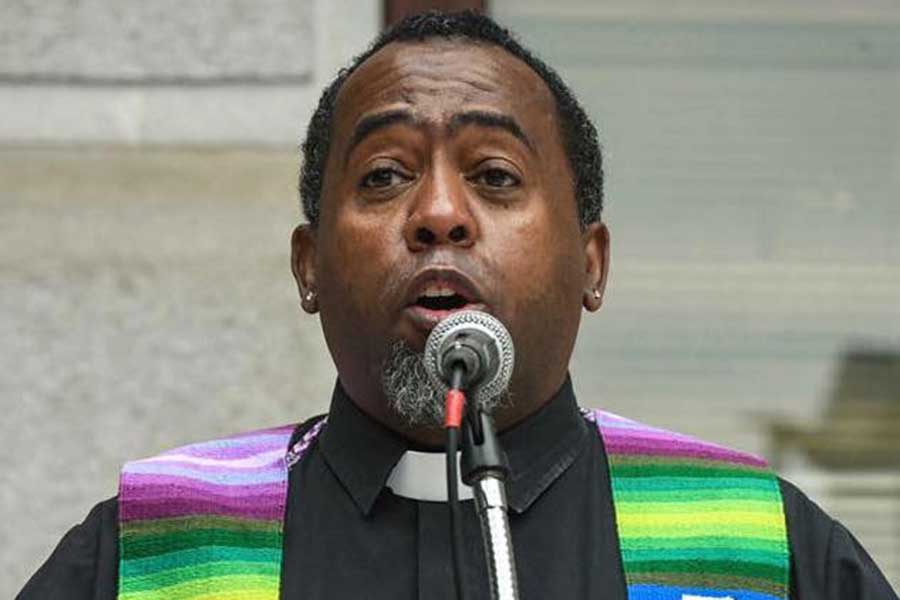The Whosoever Metropolitan Community Church of Philadelphia is reframing the historical teachings of the Bible through teachings that affirm LGBTQ rights and oppose oppression, said the Rev. Jeffery H. Jordan.
“We’re breaking down the Bible’s scripture in a different way. WMCC believes that Christ is here for the marginalized, those who are outcasts and the oppressed. We’re reclaiming the Bible as something good instead of being a tool used to condemn,” Jordan said.
The Metropolitan Community Church, a Protestant Christian denomination, was founded in 1968 in Los Angeles as a religious institution with a specific outreach to the LGBTQ community, but welcomes all in need of religious guidance. Its founding pastor, the Rev. Troy Perry, had been defrocked as a clergyperson by a Pentecostal denomination because he was gay. Perry gathered 12 people in his living room for MCC’s first worship service. Since then, MCC has grown to 43,000 members in almost 300 congregations in 37 countries.
WMCC was founded in 1971 as a place to worship and build community, Jordan said. He added that the church explores the relationship between Christian theology and political activism, especially in relation to economic justice, poverty and human rights.
“Our church stands on the front lines for justice and equality for all and we teach the ways in which to take power away from oppressors and those who use the Bible as an excuse to hate and discriminate.”
Jordan has been at the helm of WMCC since 1994. He joined the church in 1993 and was ordained as the congregation’s co-pastor that same year. He then took over as the lead reverend when his co-pastor left the church a year later.
Prior to joining the church, Jordan was ordained at the African Methodist Episcopal Church in West Virginia and served as a pastor there until he was outed and consequently defrocked.

As a result, he also lost his job at West Virginia University, where he worked as a forage-extension agent.
“I was very angry. My life was caving in from what I considered at the time an internal demon and I felt like I couldn’t fix it,” he said. “Even though I knew I was gay, I couldn’t justify my homosexuality. During that time, I thought it was wrong. My world fell in and I chose to be an abomination.”
Jordan used his six-month severance pay from West Virginia University to make his way to Pennsylvania, where he spent a year “hiding out” in Horsham, working at a camp for inner-city youth. He said he finally felt his life coming back to him when he went to his first Pride parade in 1993 and discovered WMCC, formally known as Metropolitan Community Church.
He saw the church’s sign at the parade that read, “Jesus loves you” and wanted to make the church his new home.
“That moment was the beginning of me bouncing back. It made me think that religion can play a part in my life again. I made my way back to the church and found myself. Now, my calling is to make sure the church is always there for those people who are seeking refuge from religious oppression.”
WMCC is one of the oldest gay-affirming congregations, Jordan said, adding: “A lot of people chose to come to MCC because of their spirituality but, at the same time, a lot of others came for a place of activity, to get involved, to be an activist and to work for the betterment of the LGBT community.”
Cynthia Jones, a member of Jordan’s congregation, first visited in 1993, on the same day that Jordan joined the church. She said that she was drawn to the church’s social-justice initiatives.
“It was important for me to join a church where justice was at the forefront and the Catholic churches of my past didn’t simply didn’t focus on that,” she said. “I came to MCC not believing in God and I didn’t believe that [Jordan] was a minister because he was too down to earth. My background taught me that a minister was supposed to be stiff-necked and anything but Jeffery Jordan.”
Jones acts as the treasurer of the Whosoever Campaign, WMCC’s social-justice ministry. Over the last several years, the Whosoever Campaign raised more than $5,000 to buy medicine for HIV-infected women in Africa, sponsored advanced- planning legal clinics for LGBTQ community members and provided meals to homeless people and those living with HIV/AIDS. In the last year, WMCC distributed more than 1-million condoms to the community and to LGBTQ organizations.
